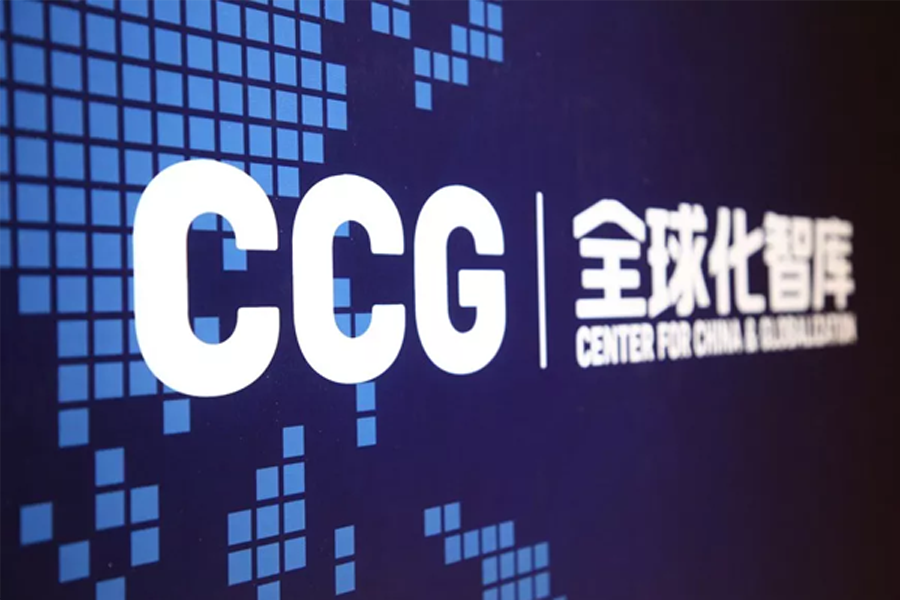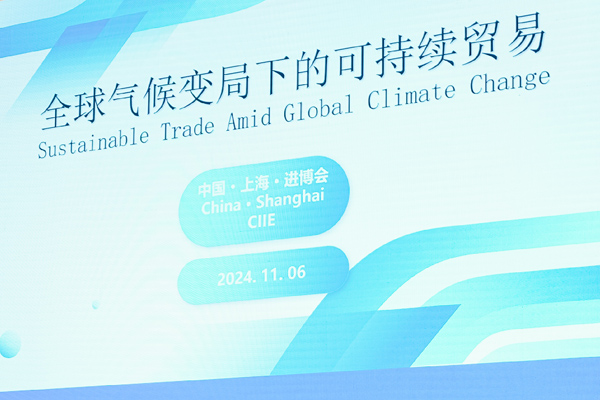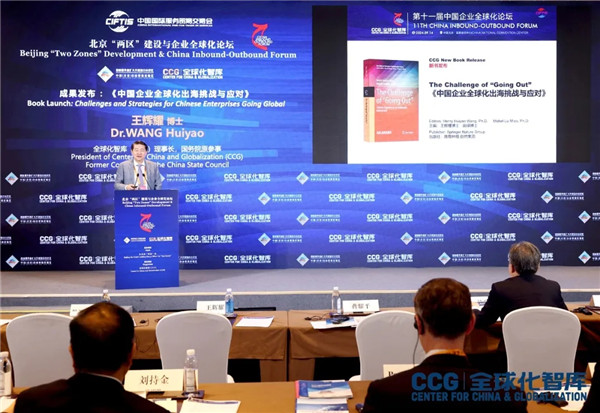CCG holds the 6th China Inbound-Outbound Forum
January 18 , 2021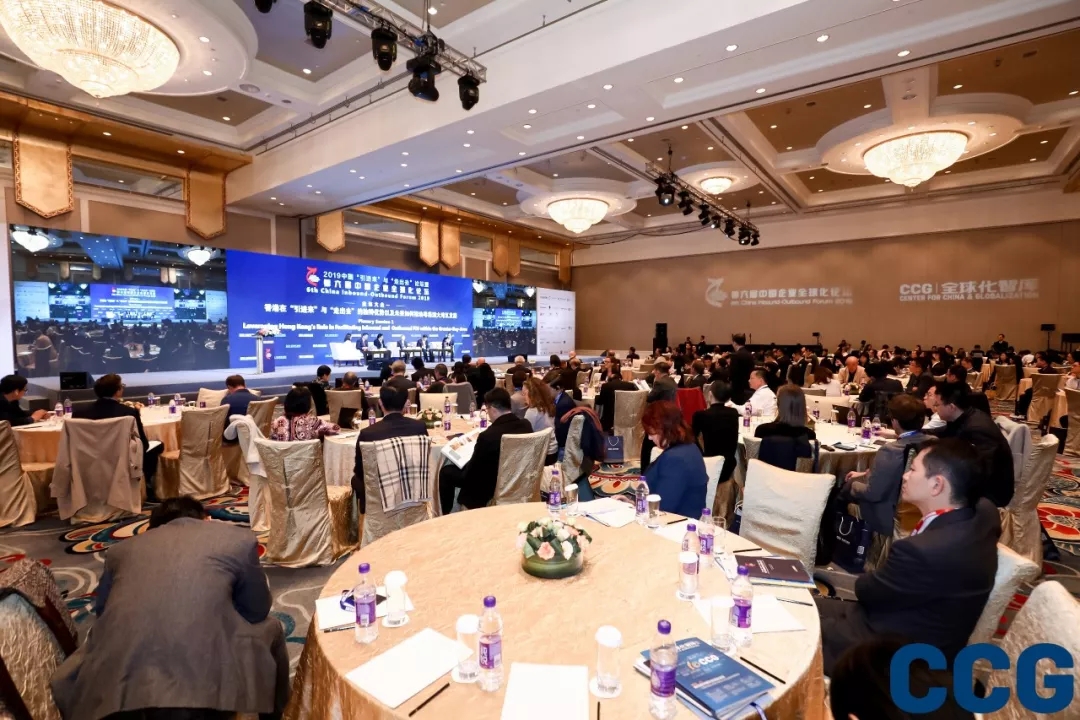
On November 2-3, the Center for China and Globalization (CCG) hosted the 2019 China Inbound-Outbound Forum in Beijing, China.
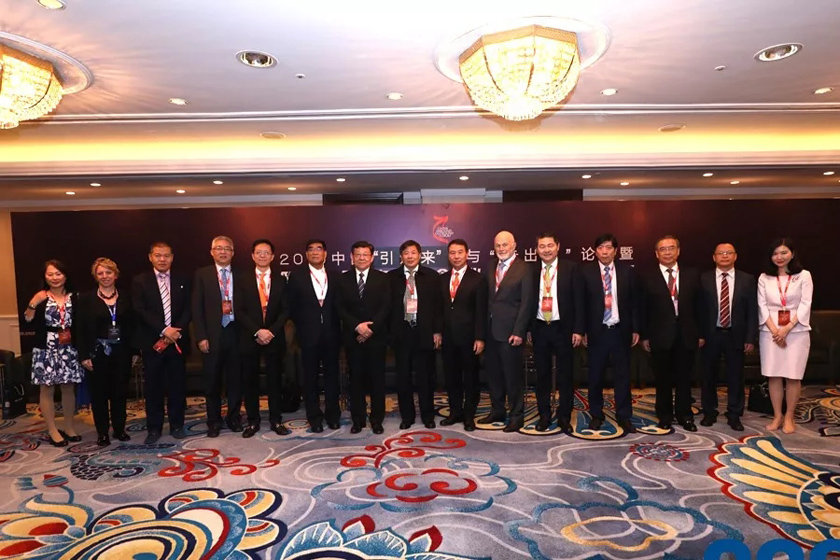

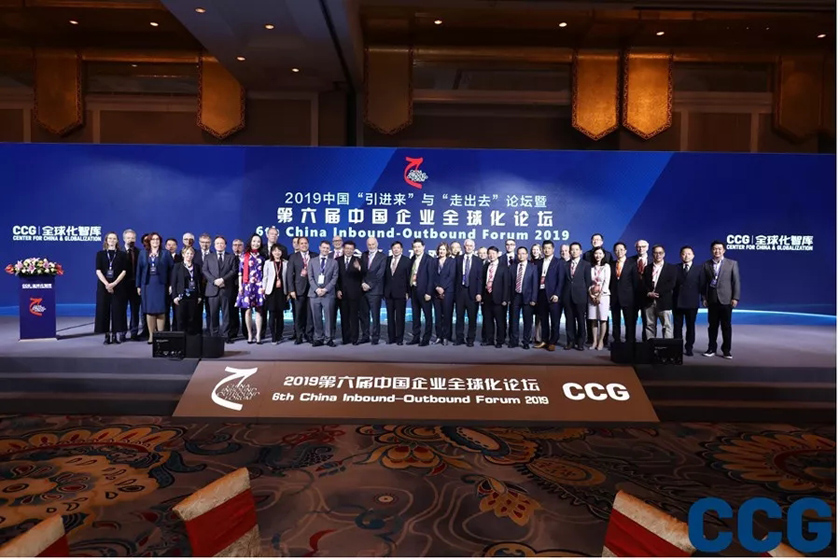
2019 marked the 6th year of the forum, which consisted of 11 plenary sessions. This year, the China Inbound-outbound Forum highlighted impacts of the US-China trade war on China’s business environment as well as responses to it. Discussions at the forum tapped into the perspectives and experiences of key players from FDI-related sectors, academics and regulators to shed light on doing business in China. Concerns, opinions and policy suggestions from the forum will be used as the basis for a post- conference report providing policy recommendations for the Chinese government.
Amidst a world in flux, forum expands focus to include inbound investment

In the opening session, CCG President Wang Huiyao and President of China Association for International Economic Cooperation (CAFIEC) Cui Mingmo delivered opening remarks.
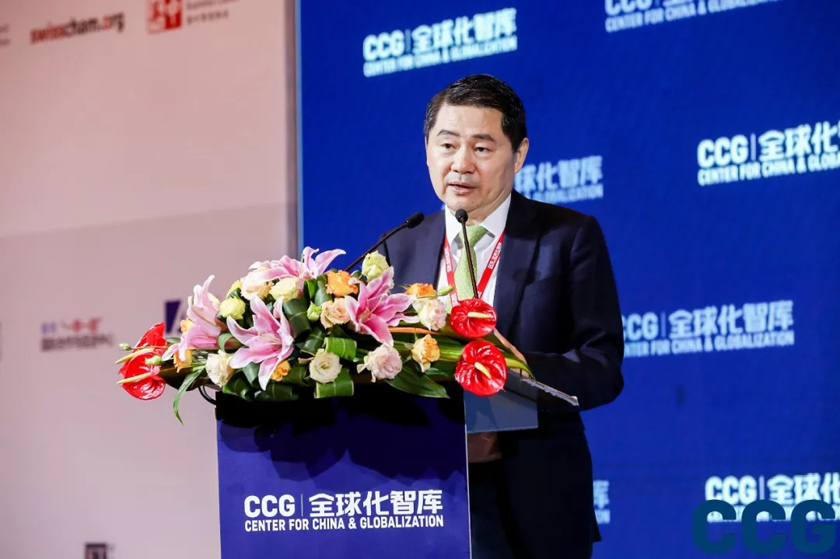
Wang Huiyao said that the 6th Inbound-Outbound Forum would help China to further open its economy, improve the business environment, and enhance conditions for Chinese outbound investment and foreign inbound enterprise.
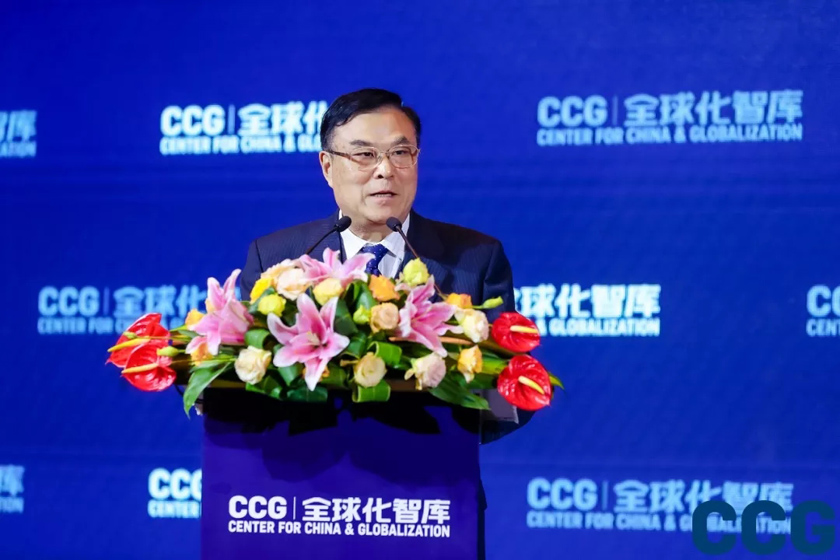
Cui Mingmo highlighted China’s economic achievements since 1949, but also warned that protectionism and unilateralism have increased uncertainties in the global economy.
Five speakers gave keynote addresses: Chen Deming, former Minster of Commerce and CCG Honorary Chairman; Zhu Guangyao, former Vice Minister of Finance and CCG Advisor; Claire Courteille-Mulder, interim UN Resident Coordinator; Zhang Yichen, Chairman and CEO of CITIC Capital; and Ding Liguo, Chairman of the Board in Delong Holdings and CCG Senior Vice Chair.
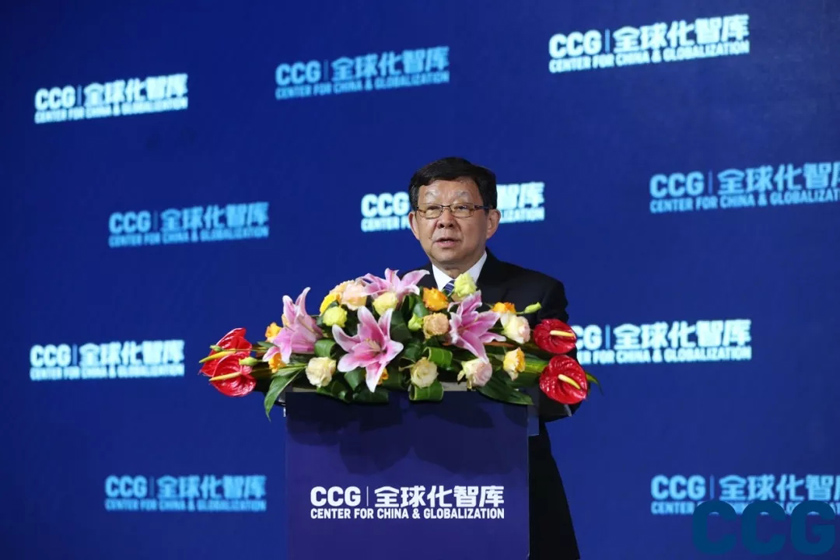
Chen Deming emphasized in his keynote that the global economic outlook is mixed with hopes and concerns. China has to persist with more opening-up policies and deepening reform. He said every entrepreneur needs to mitigate systematic financial risks and follow up potential opportunities in industrial upgrading brought by technology and informatization.
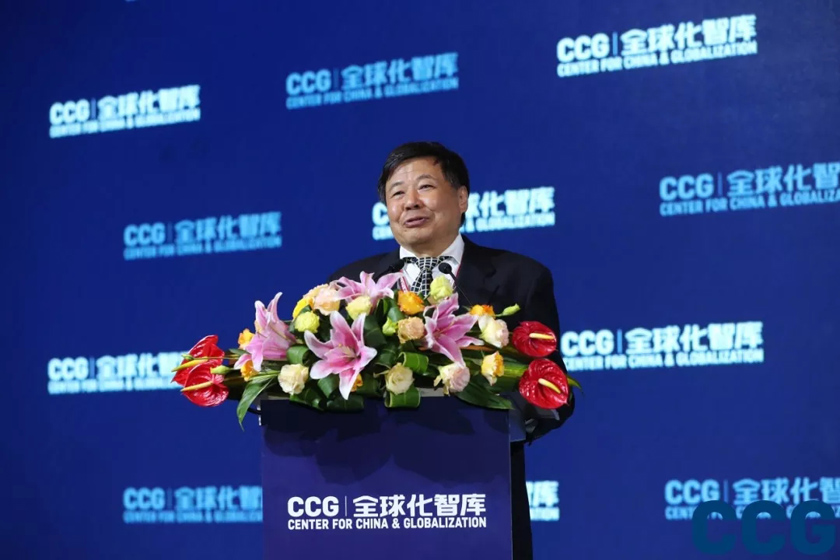
Zhu Guangyao said that economic globalization is under pressure from current complexities. He expressed hopes that the forum would help to resolve these challenges.
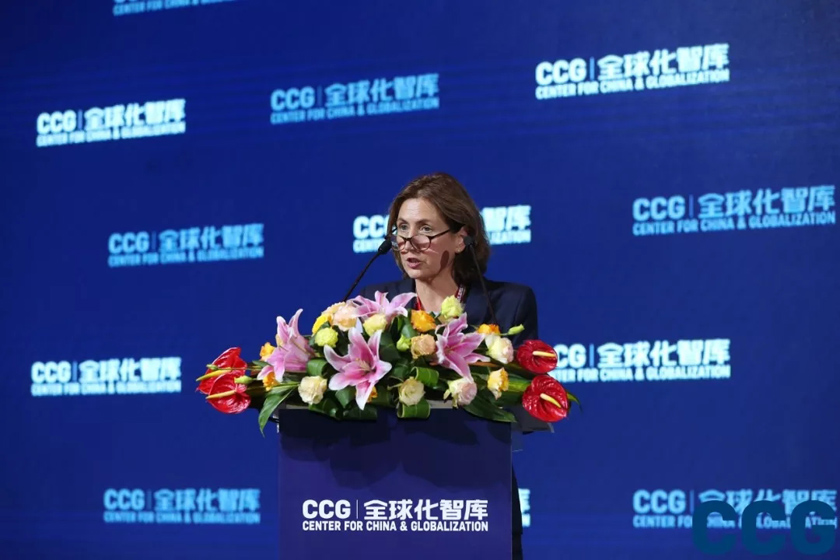
Claire Courteille-Mulder discussed the UN 2030 Sustainable Development Goals (SDGs) and stressed that inequality has caused resistance to globalization that needs constructive solutions.
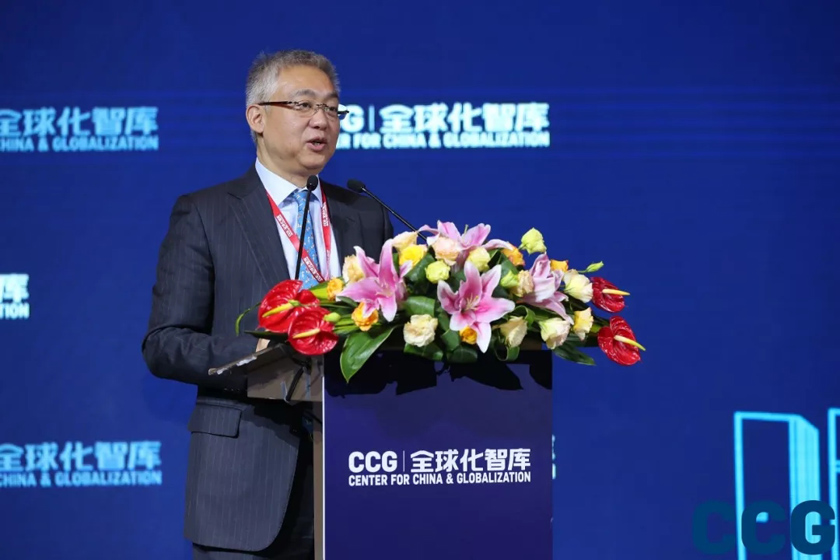
Zhang Yichen said that Hong Kong continues to be the important bridge between Mainland China and the rest of the world. He also said that Hong Kong should shift from being a bridge for goods to being one for the exchange of talent.

Ding Liguo stated that many industries in China have entered a period of surplus while private enterprises hold certain strengths. He said that confidence is very important in outbound development.
2019 Report and Ranking of Chinese Enterprises’ Globalization
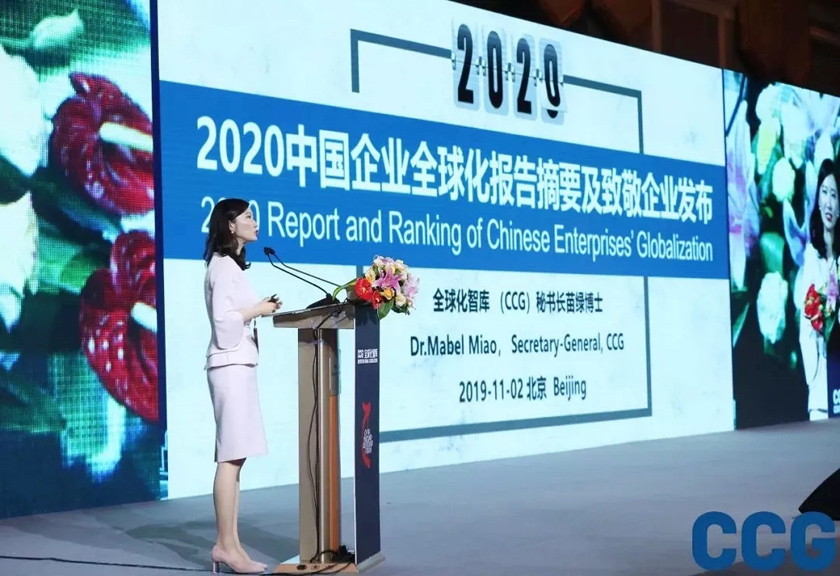
CCG specializes in policy-oriented studies of Chinese companies “going global” and publishes the annual Bluebook on the Globalization of Chinese Enterprises with the Chinese Academy of Social Sciences Press.
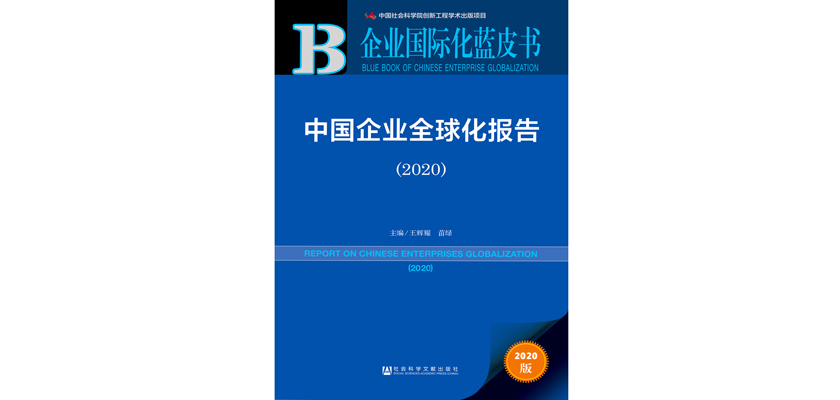
For six consecutive years, the annual conference has been hailed as one of the most popular and influential forums in China. This year, during the forum, CCG released the 2020 Bluebook Report on Chinese Enterprise Globalization. Moreover, “Top Ten Multinational Corporations in China 2019” and “Top Ten Globalizing Chinese Enterprises 2019” were also released.
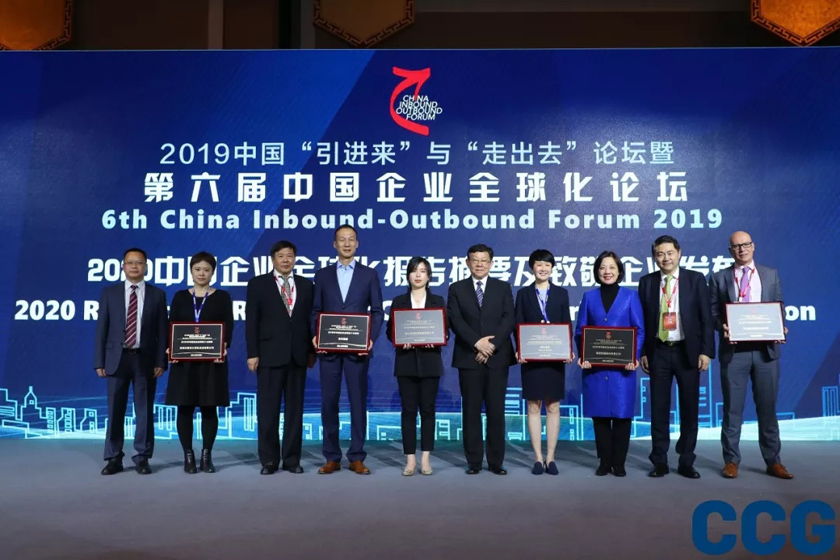
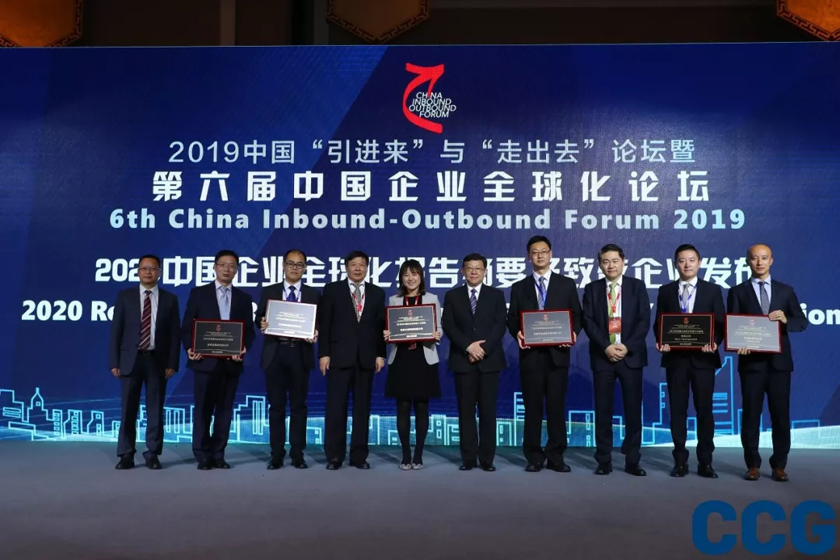
Forum overview
The forum focused on the most significant issues around enterprise inbound and outbound development, including five plenary sessions, six forums, a breakfast session, luncheon forum and symposiums to analyze and explore enterprise globalization.
Key issues addressed in five plenary sessions
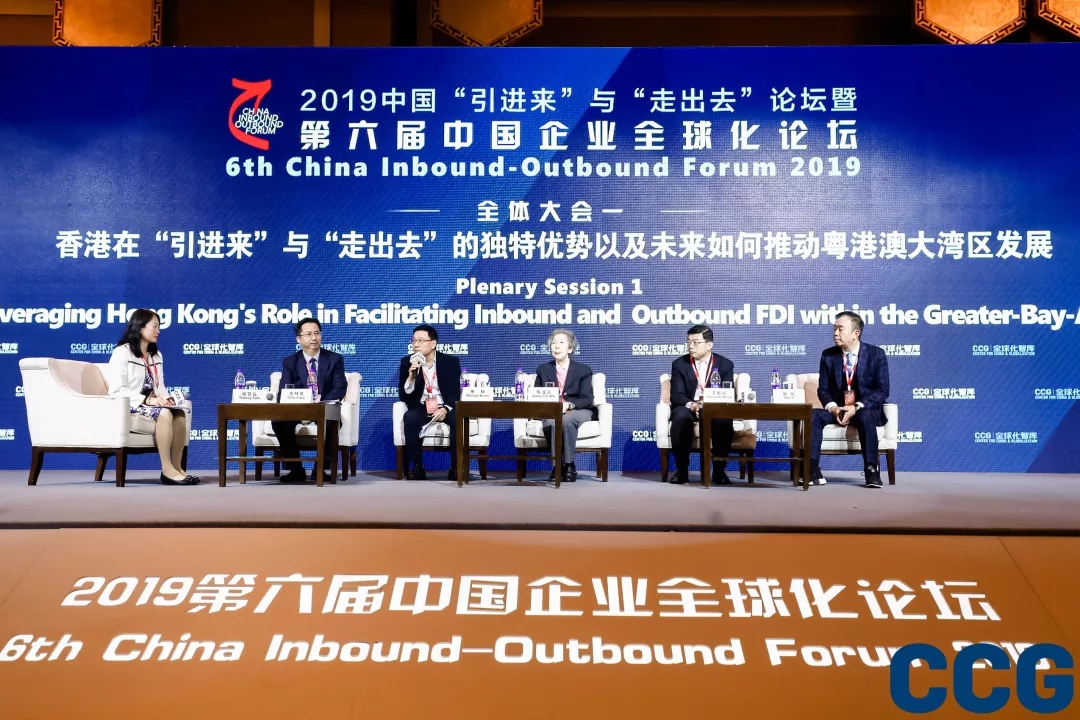
Plenary Session 1 was “Leveraging Hong Kong’s Role in Facilitating Inbound and Outbound FDI within the Greater-Bay-Area”. Panelists had in-depth discussion on how Hong Kong can come through its turbulent situation, prosper economically, and regain confidence. This also included how Hong Kong can promote economic liberalization of the entire Greater Bay Area. Tammy Tam, editor-in-chief of the South China Morning Post, hosted the session.
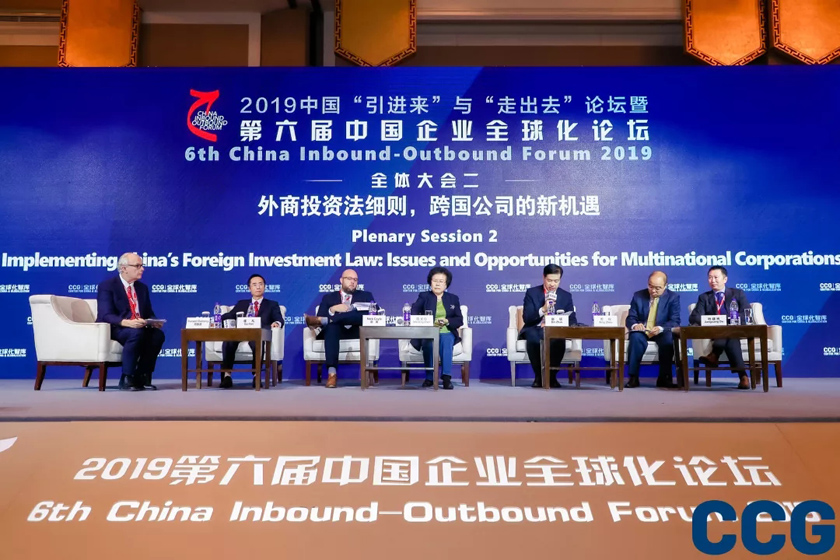
Plenary Session 2, “Implementing China’s Foreign Investment Law: Issues and Opportunities for Multinational Corporations” focused on the Foreign Investment Law. This session served as a policy communication platform for multinationals operating in China, providing legislative insights and gathering input and suggestions for implementing measures for the Foreign Investment Law. Russell Flannery, Forbes China chief editor, chaired the session.
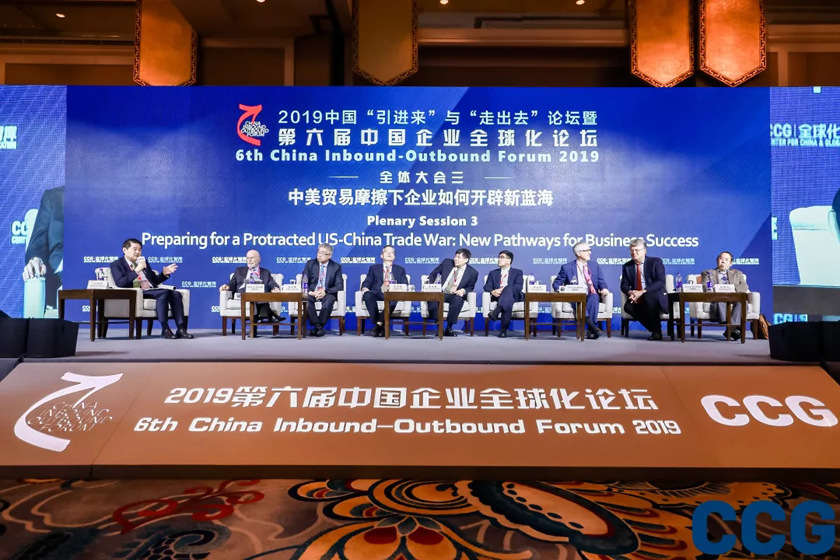
Plenary Session 3, “Preparing for a protracted US-China trade war: New pathways for business success” addressed concerns under current trade tensions. This session looked at the intensification of US-China trade tensions and impact on global supply chains. CCG President Wang Huiyao hosted this session.
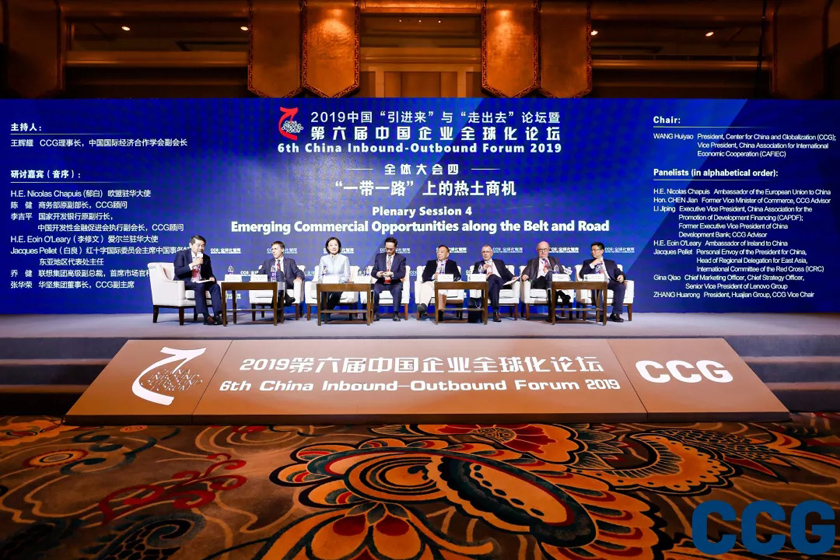
Plenary Session 4, “Emerging Commercial Opportunities along the Belt and Road” looked at the Belt and Road Initiative (BRI) and its business potential. Participants shared views on how companies can participate in BRI projects, covering aspects such as government relations, risk management, local partnership and community relations, international financing, and governance. CCG President Wang Huiyao hosted this session.
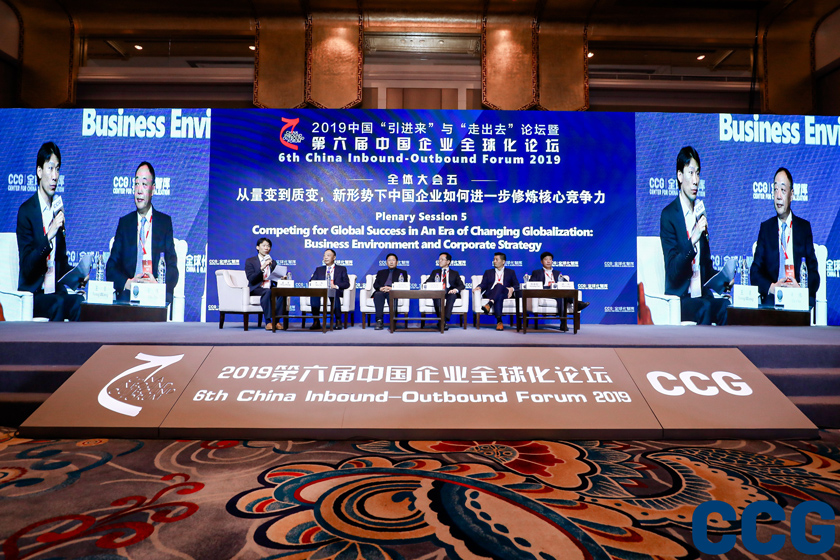
Plenary Session 5 was “Competing for Global Success in An Era of Changing Globalization: Business Environment and Corporate Strategy”. Business leaders in China shared views on the macroeconomic environment, responses to external challenges, the role of private business entrepreneurs in China’s development, and hopes and prospects for the 14th Five Year Plan. Editor-in-Chief of FT Chinese.com Wang Feng hosted.
Six Sub-forums on different topics
The forum featured six sub-forums on various topics:
- Reinvigorating Global and Regional Trade: Prospects for Asia-Pacific Economic Cooperation under WTO, CPTPP, and RCEP
- Chasing World Markets: Corporate Solutions to Shifting Global Value Chains
- A New Era of China-Europe Two-way Trade and Investment”
- Winning the Trade War/Tech Race: Technology Acquisition Strategies for Chinese Companies
- ASEAN, Africa, and Latin America: New Frontiers for Chinese Outbound Investment
- Managing Increased Demand for Global Compliance in the Context of Great Power Competition
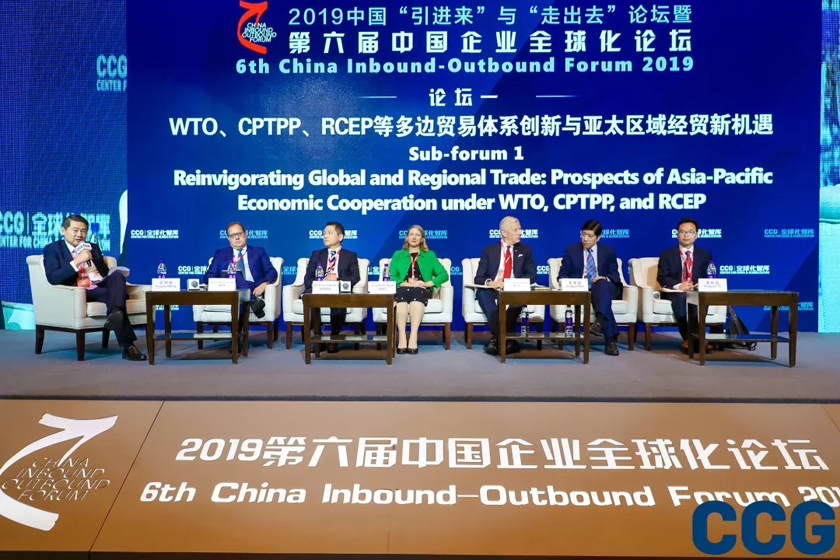
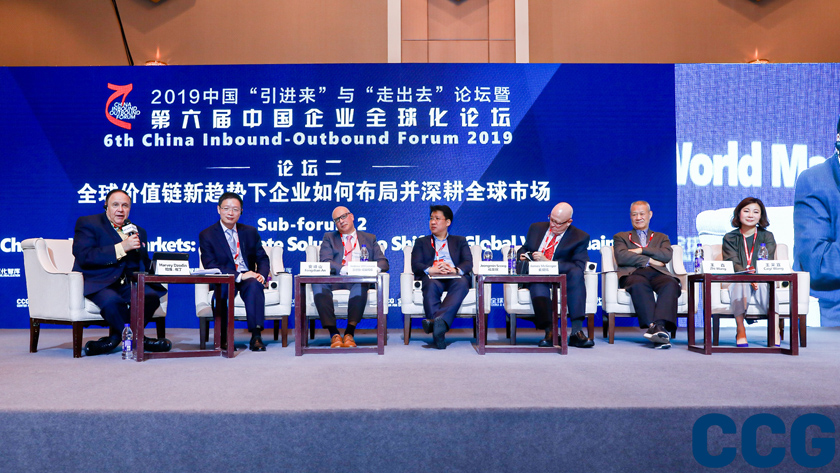
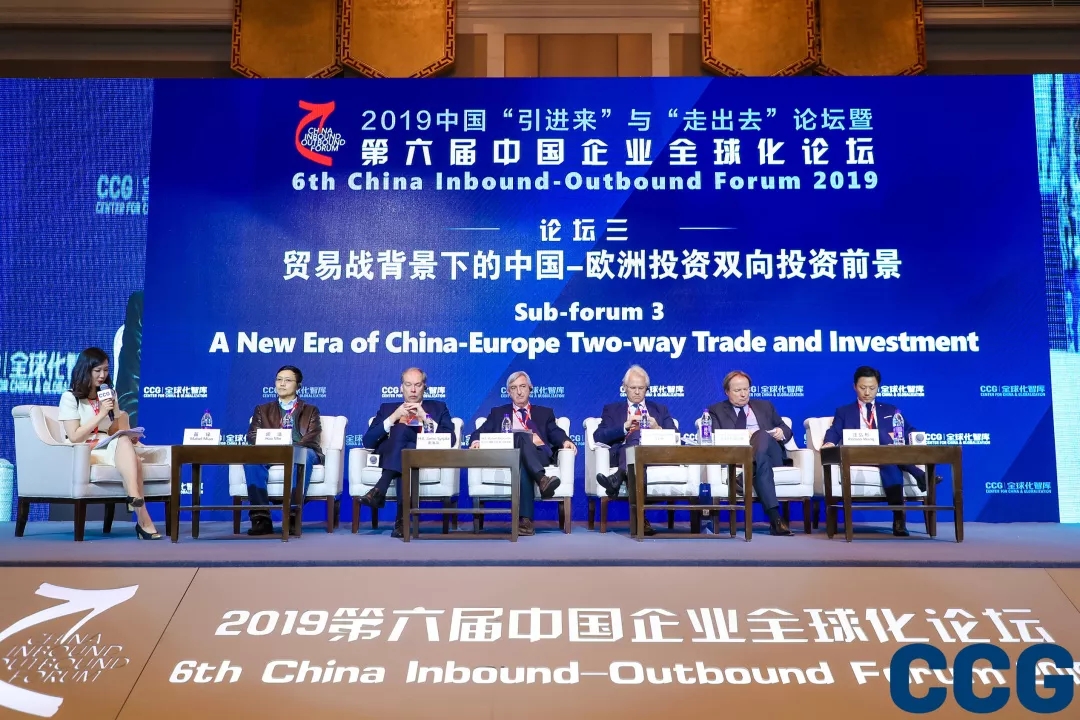
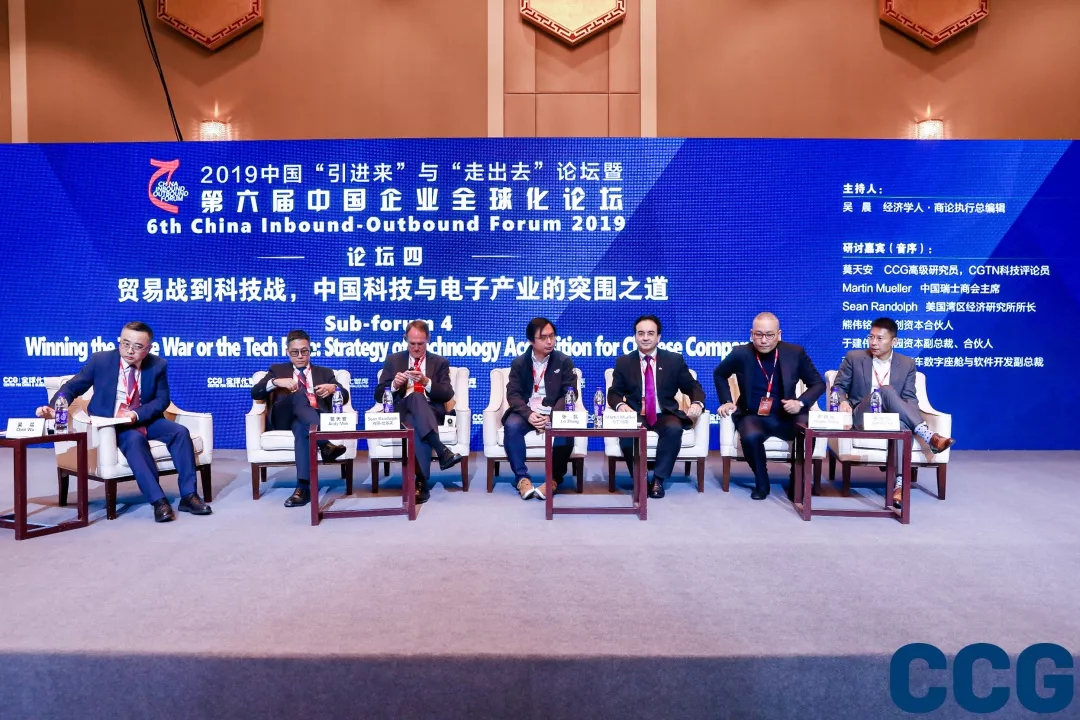
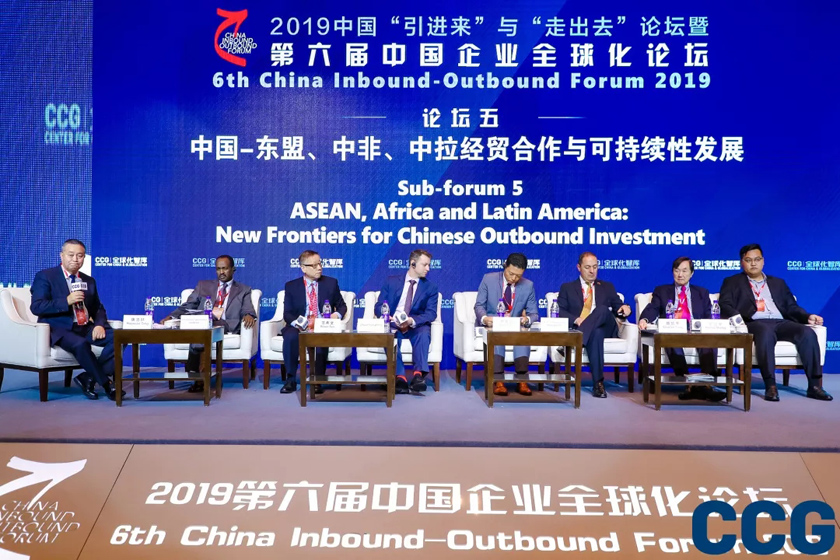
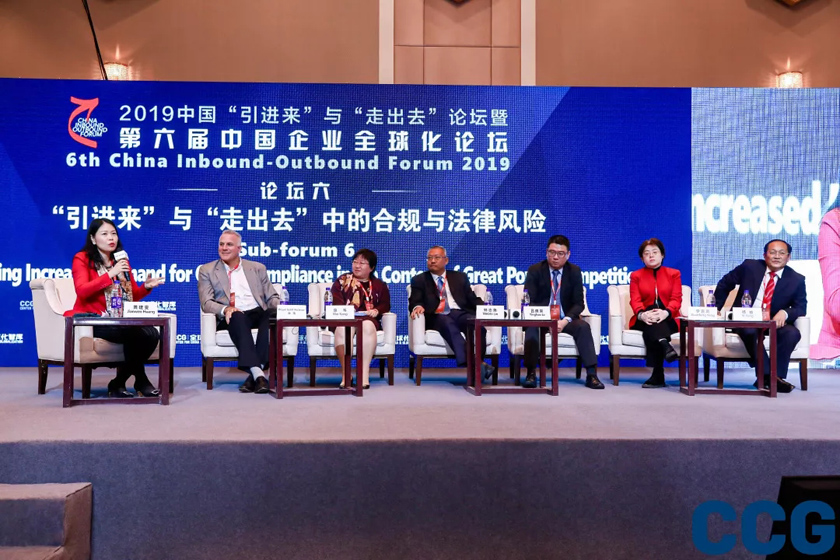
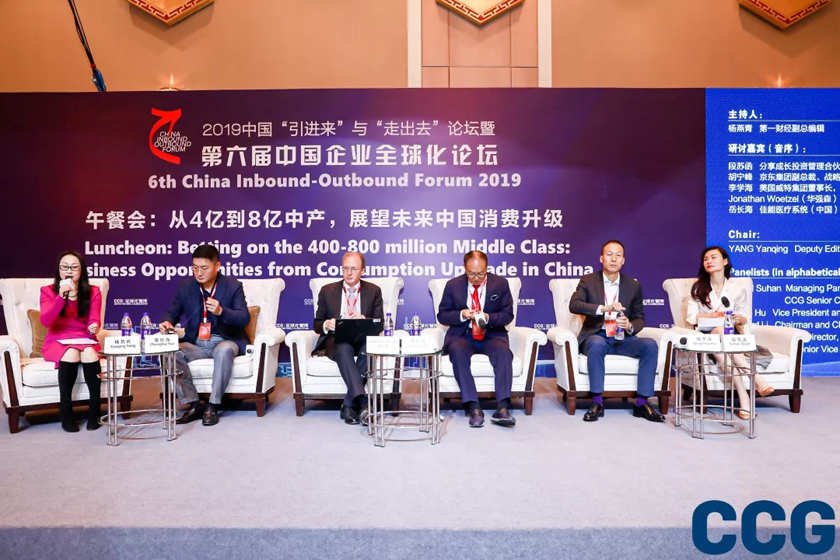
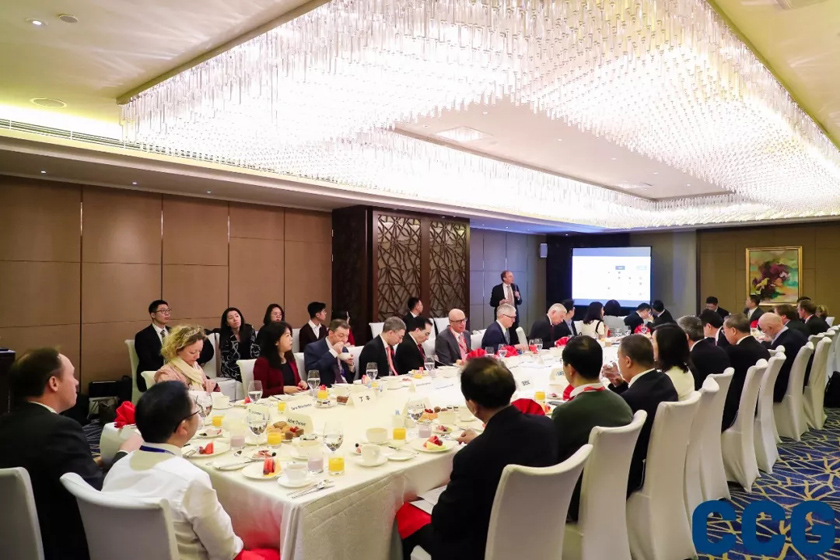
There was also a luncheon themed “Betting on the 400-800 million Middle Class: Business Opportunities from Consumption Upgrade in China” and a CCG Breakfast, “The Rise of Asia in Changing Context: Opportunities and Implications for Chinese Companies.”
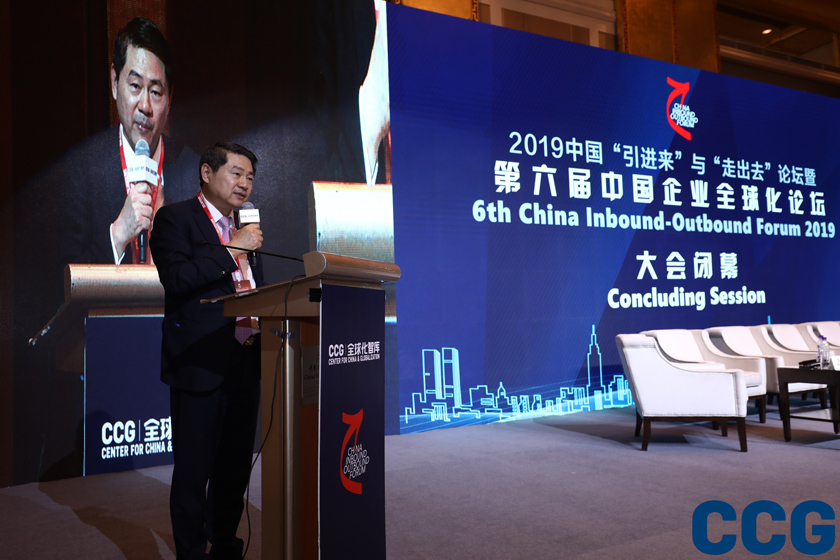
In the Concluding Session, President of CCG Wang Huiyao delivered a speech. He said that this forum aimed to promote communication across many fields and created opportunities for bilateral and multilateral cooperation. He said that CCG, as a think tank, has played a positive role in Chinese corporate globalization.
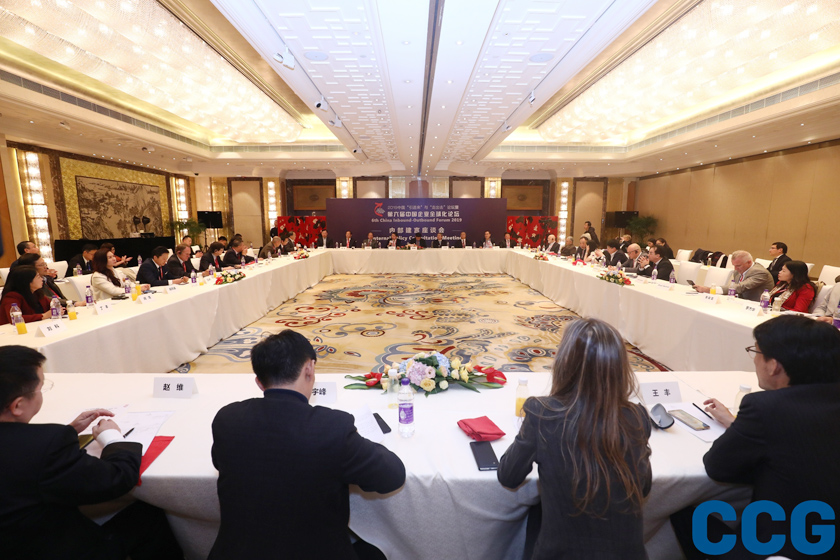
In the Internal Policy Consultation Meeting, over 20 experts and scholars explored and discussed strategies, policies and practice to promote enterprises’ globalization for inbound and outbound development.
About The 6th China Inbound-Outbound Forum (2019)

The annual China Inbound-Outbound Forum was established in 2014 amidst rapid growth of the “go global” movement of Chinese enterprises. Focusing on the modes, trends and issues of Chinese firms’ global expansion, the forum was designed as a policy communication platform for leading experts in Chinese outbound direct investment (ODI) at home and abroad. For five consecutive years, the annual conference has been hailed as one of the most popular and influential forums in China. Each year, the forum drew an average audience of 300 and considerable nationwide media attention, especially from top outlets such as CCTV.
The forum was co-organized by Center for China and Globalization (CCG), China Association for International Economic Cooperation (CAFIEC), China Association of Enterprises with Foreign Investment (CAEFI), UN China

